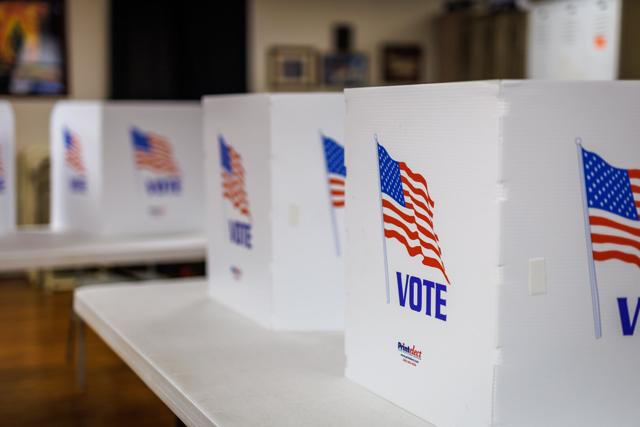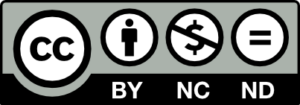
2023-11-07-Election-Chester-Gap–10-web.jpg
Voting booths inside the Chester Gap polling station on Election Day Nov. 7, 2023.
From dates to register to combating voter fraud, Rappahannock’s Registrar of Voters has answers
Rappahannock voters will head to the polls Nov. 5 to elect a president, vice president, U.S. senator and member of Congress as well as vote on a state constitutional amendment in a national climate beset with political turmoil and concerns of voter fraud.
Kim McKiernan is in charge of voting in Rappahannock County as its Registrar of Voters, and has overseen elections here for more than 12 years. She is a Virginia registration election official, certified General Registrar of Virginia and certified elections registration administrator.
We asked McKiernan about voting deadlines, safeguards against voter fraud, “rigged” elections, threats to election workers and violence on Election Day.
What are the key deadlines for registering to vote and voting?
If you haven’t registered to vote, the deadline is Oct. 15. Citizens can register at the voter registration office at 262-A Gay St., in Washington or online here.
Registered voters can cast their ballots at the same office until 4 p.m., Nov. 2. Be sure to bring a valid form of identification.
The voter registration office is open from 8 a.m. to 4 p.m. weekdays and on Saturday, Oct. 25 and Nov. 2.
What services are available for disabled or mobility limited voters who want to vote in person?
We have a handicapped accessible parking space behind our office. There is a sign with our phone number, 540-675-5380. Just call and we will come out and assist the voter curbside. All polling places have van accessible parking and offer curbside voting.
Can someone who has not registered by the Oct. 15 deadline still vote?
If someone shows up at a polling place who hasn’t registered, or updated their voter registration, they are allowed to do “Same Day Registration” (SDR) and cast a provisional ballot which is placed in a special envelope. After the election, that voter is checked in the Virginia Department of Elections’ state voter database to make sure the person has not voted anywhere else. It is again reviewed by our bipartisan Electoral Board to determine if the ballot can be counted. Since they were not cast in voting machines, SDR ballots are hand counted, but the privacy of the voter’s ballot is maintained.
What is the process for those who wish to vote by absentee ballot?
Although many absentee ballots have already been sent to those who requested them, the deadline to request a ballot to be sent by mail is Oct. 25. When completed, absentee ballots can be dropped off at our office in the secure dropbox or mailed as long as they are postmarked on or before Nov. 5. If mailing, do so early to avoid possible mail delays. I urge absentee voters to carefully read the instructions and use their ballot since it costs taxpayers about $4 to mail a ballot packet.
What safeguards are in place to make sure absentee ballots are not fraudulently cast?
First, we check the Virginia state voter database to make sure the person is registered and has not requested a ballot from somewhere else. All localities in the state use the same state voter database so a voter who has been issued a ballot can’t vote anywhere else in Virginia.
We then prepare a ballot and include it in a “certificate of mailing” which lists all absentee ballots to be mailed. Before ballots are mailed, the postmaster signs off on the certificate of mailing.
When an absentee ballot is returned to us, we date stamp it, check it into the state voter database and the certificate of mailing. The voter’s information on the outside of envelope B is also reviewed, and if there are errors, we give them the opportunity to correct the mistakes on the ballot so it can be counted.
We’ve heard a lot about voter fraud and “rigging” elections. Can you comment on that?
I’ve been a registrar here for over 12 years and I have never heard of any instances of voter fraud. If someone wanted to commit voter fraud, here or anywhere else, not only would they risk going to jail, but they would really have to understand the complexities of the voting system and all its checks and balances. It would require collusion at every level involving hundreds of people. Voters need to know that the process is overseen by dedicated public servants as well as sworn bipartisan teams which assures election integrity at every step in the process.
When voting by machine, how can a voter be sure their ballot is accurately recorded?
Virginia has one of the most rigorous certification processes for voting equipment. All machines are “logic and accuracy” tested before every election which means a set of election specific test ballots are fed into the voting machines. Results are compared to those paper test ballots to make sure the machines are operating properly. Representatives from each political party have been invited to observe this process and a member of the Electoral Board is present. The machines are then closed with security seals and safely locked away. On Election Day they are delivered to polling places where they are tested by the precinct election chief to verify that no ballots have been cast and the security seals are in place. Our voting equipment and poll books are not connected to the internet.
There have been reports that some officials around the country are concerned about violence on Election Day and threats to election workers. Have there been any threats here and are you concerned about security?
We have not received any threats but are taking a few additional steps to assure the safety of our election workers and voters. Some election offices around the country have received mail containing powdery substances, so we now open our mail in dedicated containers with a mask and gloves.
I have coordinated with Sheriff Compton to make sure law enforcement will regularly check polling places on Election Day. Finally, we have scheduled a “de-escalation” training course put on by the Department of Homeland Security. In the event there are disruptions at the polling places, I want our poll workers to have the tools necessary to handle any incidents. Election Day in Rappahannock has always gone smoothly and I’m hopeful that will be the case this November.
Will all the votes be counted on Election Day?
Certainly the in-person votes, and absentee mail ballots received before Election Day and tallies from the voting machines at our five precincts, but counting the absentee ballots received by mail after Election Day and provisional ballots will take longer. Absentee by mail ballots received before noon Nov. 8 must be counted if they are postmarked on or before Election Day. Provisional ballots, if the voter is eligible, must be counted by Nov. 15. Once that is complete the vote totals are submitted to the Virginia Department of Elections for review.
Is there anything else you would like to tell Rappahannock voters?
I want our voters to feel good about our election process and know that it is well run by dedicated citizens who swear an oath to abide by our local, state and federal election laws. Please don’t believe everything you hear, see and read, especially on the internet. And one other thing – please refrain from writing in your dog, cat, or other non-viable candidate on your ballot. Elections officials, after working 14 hours, have to hand write a list of those names in alphabetical order and it delays getting vote results.
What happens if no presidential candidate receives 270 electoral votes?
Nationwide there are 538 electoral votes. To win, a presidential candidate must have at least 270 electoral votes. Virginia has 13 electoral votes which equals the size of its congressional delegation – 11 representatives and two senators.
In the event no presidential candidate receives 270 of the 538 electoral votes, the election for president is thrown to the U.S. House of Representatives and the election for vice president moves to the U. S. Senate.
In the House, each state delegation has one vote. The winner will need a majority of the states, 26, to win. Currently, Republicans control delegations in 26 states. The last time the House voted to elect a president was after the election of 1824 when it chose John Quincy Adams of Massachusetts over Andrew Jackson of Tennessee.
In the Senate, each senator casts one vote for vice president. Fifty one senators – a majority – are needed to win. Currently, there are 49 Republicans, 47 Democrats and four independents serving in the Senate.
The election of 1824 did not require a Senate vote for vice president as John C. Calhoun of South Carolina won the majority of electoral votes for vice president. Calhoun ran as vice president under both Adams and Jackson. The Senate selected a vice president only once, after the election of 1836 when it elected Richard Johnson of Kentucky.
— Bob Hurley




